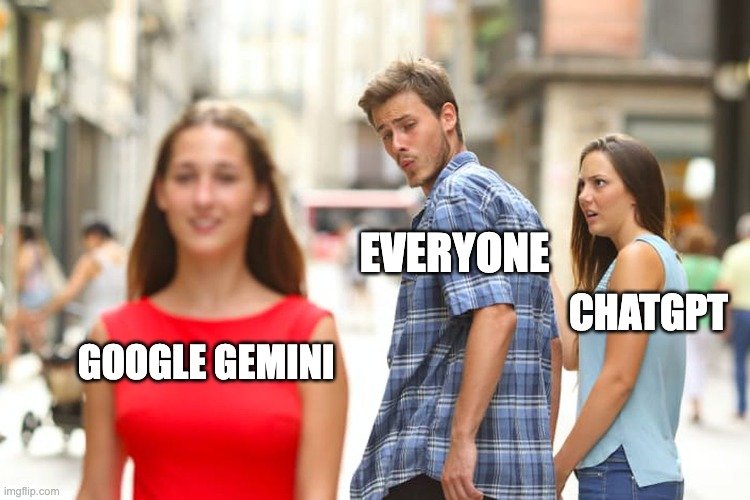Is ChatGPT already yesterday’s news?
Another week, another GenAI product?
Blink and you could potentially miss the announcement of another new - or improved - GenAI product. Technology innovations usually don’t make it into the mainstream unless there is strong consumer interest, e.g. smartphones, video game consoles, OLED TVs etc. Generative AI (aka GenAI) however, has entered the wider public’s psyche via a frenzy of interest shown by the tech community itself through the vehicle of ChatGPT, OpenAI’s chat bot that launched just over a year ago in November 2022.
OpenAI’s ChatGPT is not the first (and hopefully not the last) of it's kind, but is quickly becoming to the GenAI market what Hoover was to the vacuum cleaner market in the UK: ubiquitous and seemingly unassailable in terms of market share. The latest version of the tool - GPT-4 - is considered “multimodal”, meaning that it can now analyse various document types, including PDFs and data files. It also provides a more integrated tool environment, allowing the generation of Dalle 3 AI images from within a single “conversation”.
On 6th December 2023, Google announced the introduction of Gemini, the tech behemoth’s “largest and most capable AI model”, positioning it as an extremely capable, multimodal offering. The accompanying demonstration video seemed to show some incredible features: visual tracking of human hands, outcome inferencing in real-time based on limited information, taking inputs from a spoken voice. Parent company Alphabet Inc’s stock jumped from $129 on Monday 4th to $136 on Thursday 7th, an increase of 5.4%.
Unfortunately, the reality was somewhat disappointing. Google had liberally applied smoke and mirrors to make it look like Gemini was responding in real time (it wasn’t) and to a human voice (nu uh). In fact, the new AI model was being prompted by text input, and only provided with a selection of still images taken from the video. TBF, Google included some notes with the YouTube demo indicating that latency had been reduced and responses shortened, but most commentators believe this was still a big fudge.
It’s a pity that Google felt they needed to do this, but it’s an indication of the fierce competition that the firm is facing from OpenAI and others. Being first to market with an innovative product has historically been the goal of tech entrepreneurs, and ChatGPT appears to be leading the pack. It’s not that straightforward though. Tech titan Apple was nowhere near first to launch a mobile phone but it now dominates the market along with its rival Samsung. “First movers” often spend huge sums establishing products and educating the market. Multiple sources estimate that it costs OpenAI over $700k per day to run ChatGPT.
Google may be feeling the pressure to live up to its reputation for innovation but it might do well to iterate on - rather than try to leapfrog - its already significant progress in GenAI while keeping an eye on the specific features that potential customers are looking for. With its vast suite of popular software and tools, having a GenAI product that is closely integrated with its portfolio seems like the a good strategic approach.
Product demos are great for providing inspiration, but the danger with GenAI is that it is too easy to call “hype” when vendors over-promise….

